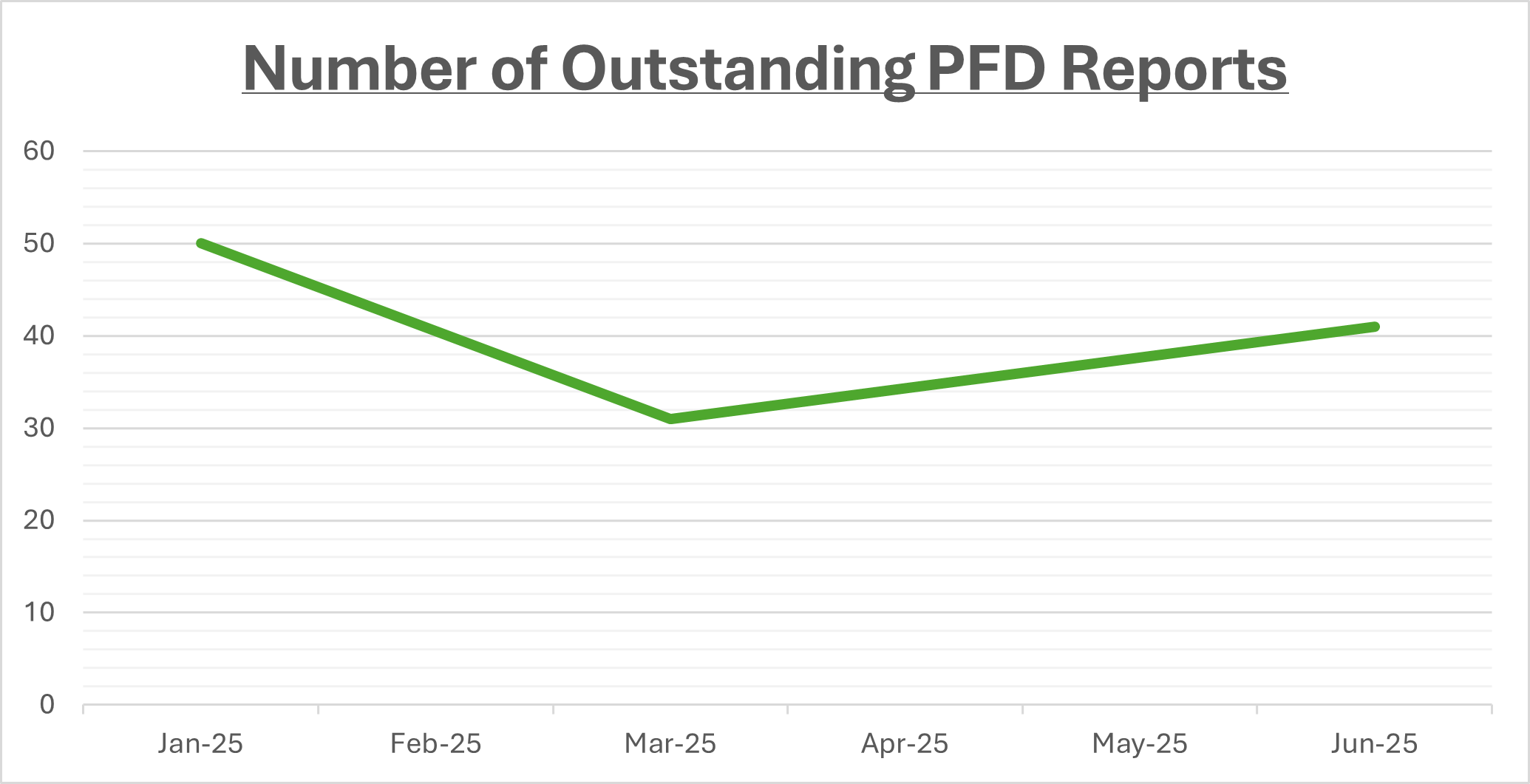
Why we need criminal sanctions for organisations ignoring coroner’s warnings
Organisations involved in cases of avoidable fatality should face criminal sanctions if they fail to explain how they will prevent similar deaths in the future.
We are calling for tougher measures as new figures show organisations are once again failing to provide coroners with improvement plans.
Earlier this year, I wrote about the Chief Coroner’s new ‘Badge of Dishonour’ policy, introduced in January 2025. The policy was established to address an ongoing concern in the coronial system: the failure of organisations to respond to Prevention of Future Deaths (PFD) reports.
Under the Coroners (Investigations) Regulations 2013, organisations receiving a PFD report are expected to respond within 56 days, outlining either the steps they have taken or plan to take in response to the coroner’s concerns, or an explanation as to why no action is being taken.
When this obligation is ignored, the consequences can be devastating. A lack of response not only raises concerns about institutional accountability but also undermines the very purpose of the PFD process: to prevent other families from enduring the same loss.
Naming non-compliant organisations
To improve transparency and encourage compliance, the Chief Coroner began publishing a list of organisations that failed to respond within the required timeframe. The list released in January 2025 named 50 organisations, the majority of which were in the healthcare sector.
By March 2025, an initial influx of organisations submitted their PFD responses after featuring on the register, but the most recent list, published on 30 June 2025, shows the number of non-compliant organisations has risen to 41, reflecting an upward trend once again.

Figure 1
Wider data also indicates concern:
- Only about 60% of PFD reports receive a full, published response.
- More than 1,450 reports currently show no response at all on the publicly available Preventable Deaths Tracker.
Despite the policy’s good intentions and the Chief Coroner’s clear commitment to transparency and accountability, these numbers suggest public shaming alone has not yet achieved its intended deterrent effect.
Why responses matter to families
For many families, PFD reports offer a glimmer of hope: that some good may come from their loved one’s death, and that future harm may be avoided. But when organisations fail to engage, it leaves unanswered questions and often, unresolved grief.
At present, there is no legal power to compel an organisation to respond to a PFD report. Without that accountability, families are left to witness the same patterns repeating, with little sign that lessons are being learned.
A failure to respond is more than a missed deadline, it can feel like a dismissal of the coroner’s concerns.
Growing calls for reform
These are not just legal issues, they are matters of public safety, dignity, and justice. There is increasing evidence that lives are being lost because institutions are failing to listen and respond.
Alongside campaign groups such as INQUEST, Bolt Burdon Kemp LLP has previously called on the Government for:
- A central oversight body to monitor responses to PFDs; and
- Legislative reform to give coroners enforcement powers.
Bolt Burdon Kemp LLP is committed to supporting families who have lost loved ones due to institutional failings.
Without meaningful legal consequences, there is a risk that some organisations will continue to view PFD reports as a procedural formality rather than a serious call to action. Enforcement must be proportionate, but it must also be effective, especially where inaction may result in further preventable deaths.
Although the Chief Coroner’s efforts should be applauded, for some large or well-funded institutions, reputational risk alone is seemingly not enough to prompt change. In such cases, the prospect of criminal sanctions may be the only remaining meaningful deterrent.
A call for meaningful change
It is important to recognise the Chief Coroner is operating within the current legal framework and has limited powers of enforcement. The introduction of the ‘Badge of Dishonour’ policy reflects a proactive and commendable attempt to drive change and ensure greater transparency. But my instinct is that transparency alone may not be sufficient to deter all organisations, particularly those with substantial resources where reputational risk holds less weight.
To truly honour the lives lost, we believe the coronial system must be supported by stronger enforcement mechanisms, clear legal duties, and a cultural shift that puts prevention at the heart of public safety.
Bolt Burdon Kemp LLP is therefore calling for criminal sanctions where serious and systemic failings are identified by a coroner and not acted upon, to ensure true accountability and meaningful change. Our call for reform is intended to build on the existing foundations by ensuring coroners are equipped with the tools they need to protect lives more effectively.









